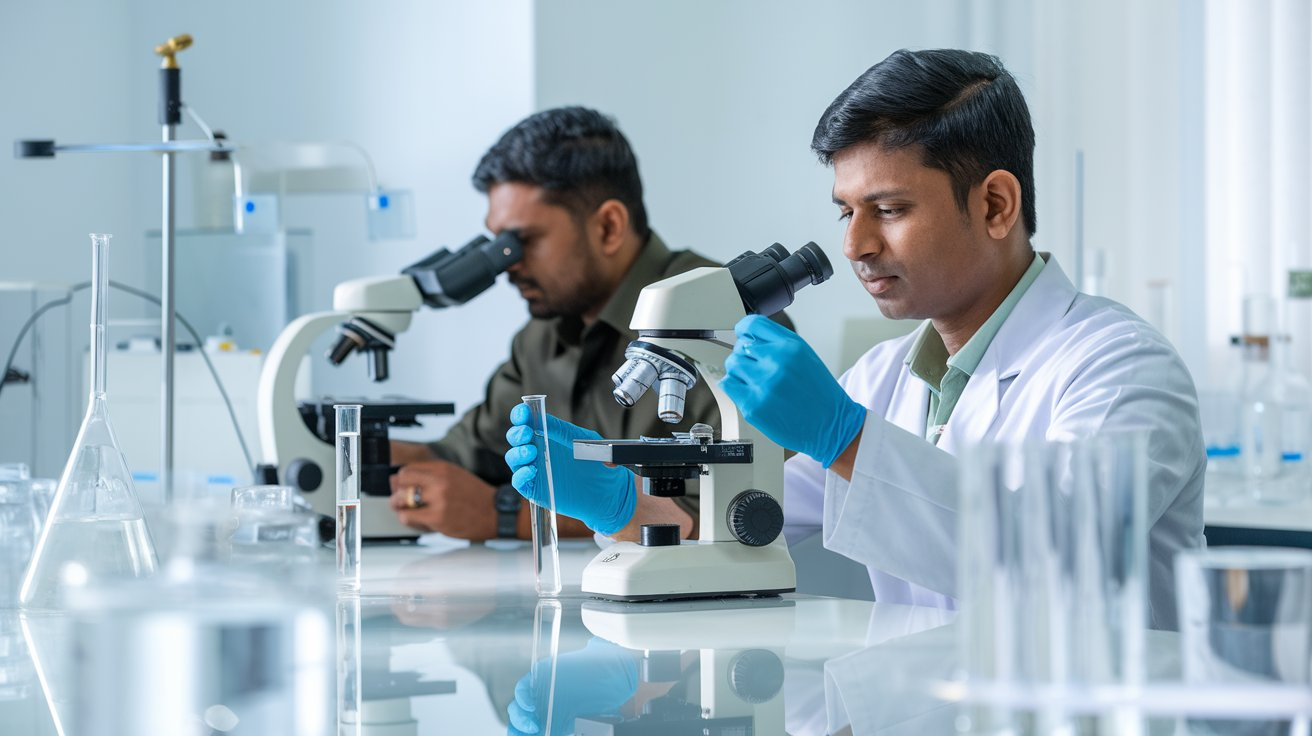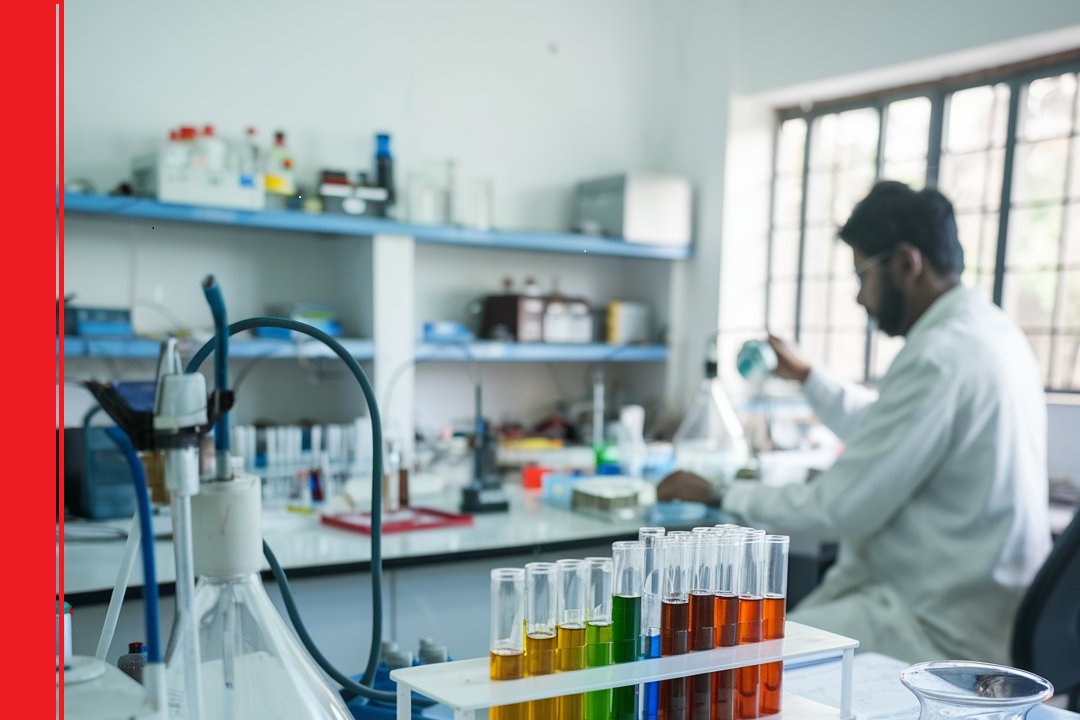Best Water Testing Lab in Midnapore: Water Testing Done Right
If you're in search of the finest water testing lab in Midnapore, your concern is understandable given the rising pollution levels in the water supply. The quest for safe drinking water has become more challenging due to rapid industrialization and urbanization. Presently, water is frequently contaminated with harmful pathogens, bacteria, and hazardous chemicals, which can pose significant risks to you and your family. Despite strict regulations on industrial waste disposal, these issues continue. Moreover, the utilization of river water for various human activities has increased its susceptibility to numerous diseases. In addition, the depletion of underground water and its contamination with substances like arsenic and high levels of iron is a growing concern. Consequently, comprehensive inspection or testing of water, particularly drinking water, is imperative. As previously stated, to address the escalating waterborne diseases, the expertise of a specialized water testing laboratory in Midnapore is essential. Prores Lab, renowned as the leading water testing lab in Midnapore, is committed to your service. Equipped with advanced technology, our proficiency is in detecting harmful substances in your drinking water, guaranteeing the purity of every drop.
Top Government-Approved Testing Lab in Midnapore: What are the Dangers?
A study published by Nature Communications in February 2024 forecasts a quadrupling of subbasins lacking safe water due to escalating nitrogen pollution. It is crucial to acknowledge that consuming contaminated water can cause chronic illnesses, including cancer, and neurological, reproductive, and gastrointestinal disorders. Additionally, the state of water pollution in Midnapore is dire, primarily from the disposal of human sewage, animal waste, and industrial pollutants into the Ganges rivers. The city's sewage treatment plants are largely inefficient, treating only 37% of the generated 72,368 ML/D of sewage.
| Causes | Effects |
|---|---|
| Human Waste | The dense population residing along the riverbanks exacerbates the sewage issue, as three-quarters of the sewage produced in the northern plains is discharged into rivers without treatment. The waterborne diseases resulting from the river include dysentery, cholera, hepatitis, and severe diarrhoea. |
| Industrial Waste | The proliferation of industrial cities, tanneries, chemical factories, and hospitals along the riverbanks has exacerbated pollution. This pollution has resulted in the reduction of freshwater fish and turtle populations, and the Ganges river dolphin is now classified as an endangered species. |
| Microbial contamination | The association of bacteria, viruses, parasites, and pathogens originating commonly from human or animal waste is widely recognized. |
| Chemical Contamination | Contamination arises from natural metals and minerals, synthetic chemicals, industrial pollutants, and agricultural runoff. Compounds like arsenic, lead, nitrates, and pesticides are linked to health issues such as cancer, birth defects, kidney damage, and neurological disorders. |
Why Do You Need a Water Quality Testing Lab in Midnapore?
Protecting the residents of Midnapore is crucial as water contamination poses a significant public health risk. Governments have established standards to ensure the reliability of water testing in laboratories. Inaccurate testing could result in the unintentional consumption of contaminated water, hence the importance of adhering to these standards. Moreover, the government has set guidelines to maintain the precision of laboratory water tests. Failing to obtain accurate results can lead to the accidental ingestion of polluted water. Therefore, it is imperative to verify that test results meet governmental requirements to safeguard public health.
Furthermore, governmental accreditation, such as the certification from the National Accreditation Board for Testing and Calibration Laboratories (NABL), is often necessary for formal recognition. These accrediting organizations implement strict quality control measures to ensure laboratories meet high proficiency levels and rigorous standards. Therefore, possessing government certification ensures that a laboratory performing water tests complies with strict reliability and quality standards. This, in turn, strengthens public trust in the laboratory's results and the overall water safety monitoring system. Additionally, regulatory mandates require that only government-approved water quality testing laboratories may operate in Midnapore, ensuring adherence to all legal standards for water quality assessment.

How Do Water Testing Laboratories in Midnapore Conduct Tests?
- Step One: Accurate sample collection is crucial because insufficient data collection can result in incorrect conclusions. Specialists use strict protocols to gather samples from wells, taps, rivers, and other water sources to avoid contamination. Selecting a sampling site requires assessing the anticipated water usage and the likelihood of contamination. To maintain sample integrity, they are transported in sterilized containers.
- Step Two: Once samples arrive at the laboratory, they are quickly moved and stored before processing, following established protocols. Some assays might need preservatives added to preserve the analytes' integrity. High-precision analysis often requires sophisticated equipment like mass spectrometry, gas chromatography, and spectrophotometry. Conversely, simpler techniques such as titration for parameter analysis or colourimetric assays may be employed for various analyses. It is crucial to keep a stable temperature during transport to ensure the accuracy of certain tests.
- Step Three: Specialized personnel collect water samples using precise equipment and methods for laboratory analysis. The selection of tests depends on the intended use of the water and the likely contaminants of concern. Commonly analyzed water quality metrics encompass:
- Physical characteristics include hue, temperature, and cloudiness/turbidity.
- Chemical characteristics include pH, conductivity (dissolved solids), and particular ions (e.g., nitrates, arsenic, lead).
- Biological parameters such as bacterial count (the number of dangerous microorganisms present).
- Step Four: The water testing process culminates in data analysis and report generation. Experts evaluate the findings for particular water uses to verify conformity with prevailing norms and standards. A comprehensive report is produced, detailing the testing procedures used, the outcomes obtained, and their compliance with regulatory standards. This report determines if the water meets the stringent quality requirements for its proposed application.
Prores Lab: The Best Testing Lab for Water In Midnapore
| Benefits | Explanation |
|---|---|
| Detecting Contamination | Water testing can reveal the presence of harmful contaminants, including bacteria, viruses, chemicals, and minerals. Early detection of these substances enables appropriate treatment and helps prevent diseases. |
| Monitoring Water Treatment | Consistent testing guarantees that filtration facilities and other water treatment systems are operating correctly and effectively eliminating contaminants. |
| Pollution Monitoring | Testing water is essential for identifying pollutants that can damage aquatic life and ecosystems, such as industrial waste and agricultural runoff. |
| Sustainable Management | Comprehending water quality is vital for the efficient management of water resources and aids in preventing the pollution of our water supplies by contaminants. |
| Water Treatment Requirements | Test results can inform the decision-making process in the development of water filtration systems and in addressing particular water quality concerns. |
| Early Intervention | Testing private wells and water sources is crucial for ensuring the safety of water used in homes and for consumption. Early detection of water quality issues allows for prompt corrective actions, minimizing adverse effects. |
| Peace of Mind | Regular testing is essential to ensure that filtration plants and other water treatment systems are functioning properly and efficiently removing contaminants. |
Conclusion
Prores Lab understands the long journey ahead and recognizes the critical nature of testing for the safety of drinking water. Our lab analyzes water samples for contaminants like pesticides, heavy metals, and microbial threats to ensure compliance with safety standards and suitability for consumption. Clean drinking water is vital for individual and community health, preventing waterborne diseases. As Midnapore's premier water testing lab, known for outstanding water quality evaluations, we prioritize your well-being by engaging highly skilled professionals who meticulously collect samples through various techniques. Our advanced technology guarantees precise and thorough test results. We also provide water testing in Siliguri, Kolkata, Haldia, Durgapur and Howrah and food testing in Kolkata, Siliguri, Howrah, Mumbai, Durgapur, Haldia and Midnapore as well!
FAQs
- What is water testing in a lab?
- Water testing involves analyzing water samples to identify the presence of potentially harmful substances.
- Why is a drinking water testing lab in Midnapore necessary?
- Testing can assist in pinpointing pollution sources, like defective sewage systems or industrial waste, when contamination is detected.
- How can public health be safeguarded by a water quality testing lab in Midnapore?
- Contamination of water by harmful bacteria, viruses, and heavy metals can lead to serious long-term health issues such as diarrhoea and typhoid. Regular testing is crucial to detect these contaminants and ensure the safety of the drinking water supply.
- Why are water pollution levels monitored by water testing laboratories in Midnapore?
- Midnapore is facing challenges with pollution and the overexploitation of its water resources. Regular monitoring of water quality assists authorities in identifying trends and implementing required actions.
- How can we handle water sustainably?
- Regular testing helps in identifying potential risks, thus facilitating the proactive safeguarding and conservation of this vital resource. Consequently, it encourages the adoption of prudent water management practices.
- What is the recommended frequency of water testing?
- Several factors, including the water source and potential contamination risks, determine the frequency of water testing. It is advisable to test your drinking water at least annually.
- If my water is polluted, what can I do?
- Depending on the contamination level, it may be necessary to secure an alternative water source, utilize a filter, or boil the water.
- For water quality assurance, it is advisable to have it tested at a reputable facility like Prores Lab.
- Which water testing lab in Midnapore is the best?
- Without a doubt, the best water testing lab in Midnapore is Prores Lab.
What Our Clients Say!
Apply For Franchise
Partner With Us






